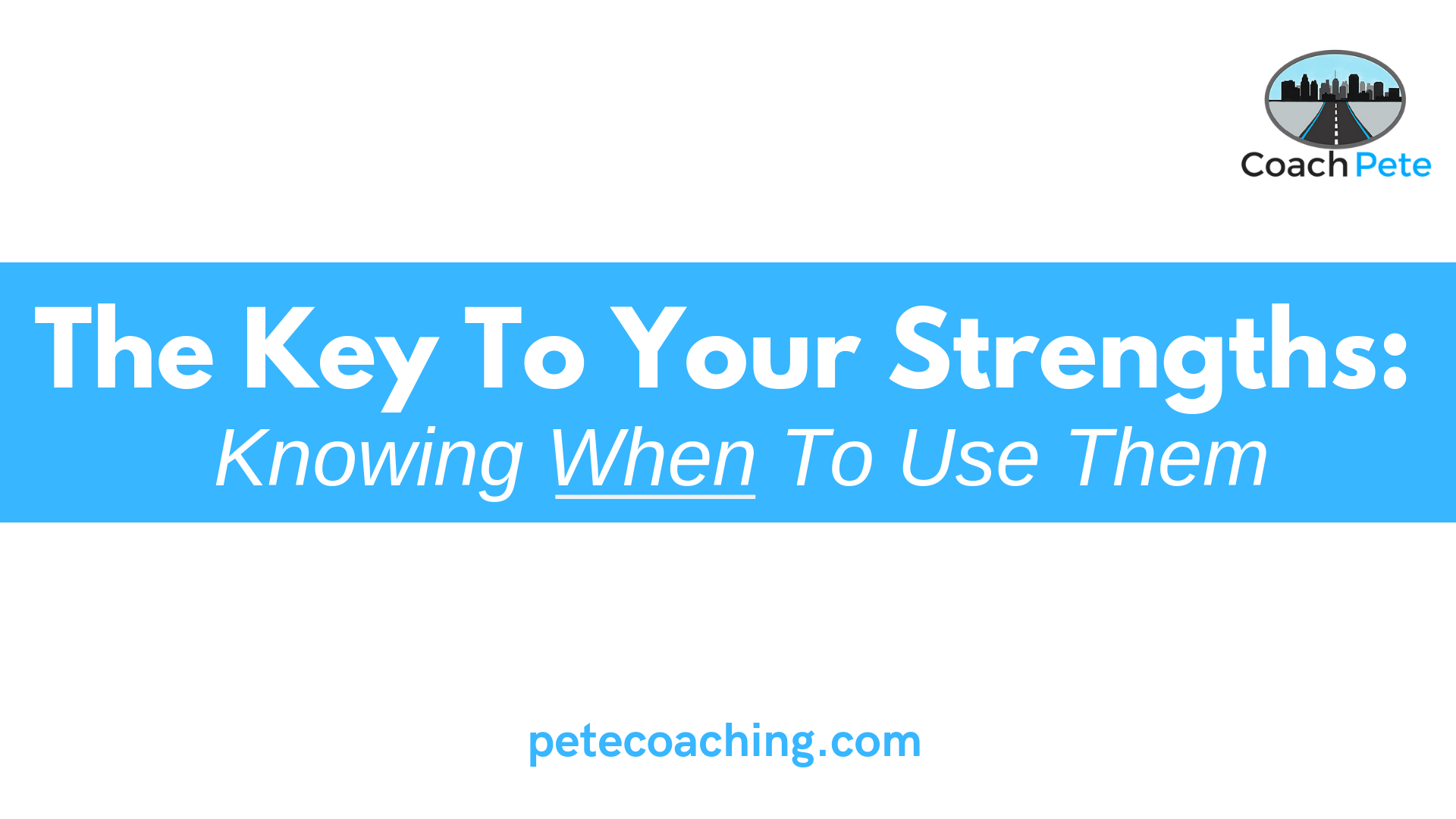(Check out this sample excerpt from a coaching session)
Client: “I just love strategic planning. When my team lays out their goals and barriers, I can very quickly see the way forward. It’s like I intuitively know which path will work and which ones won’t.
Coach Pete: “That’s great. What’s the best part of that for you?”
Client: “It just brings me a lot of pleasure to contribute my best work. And there are times that I get so excited because I was the first one to see it and I just know it will work out. I feel like I’m ‘in my zone.’”
Coach Pete: “Is there any downside to that excitement?”
Client: “Well, now that you mention it, it can also be frustrating. Sometimes the answers come so fast I have a hard time verbalizing them. And when my coworkers don’t see the answers as quickly as I do, I lose patience with them and can cut them off when they want to keep discussing it. One time, someone even said I come off as condescending. I think it’s getting in the way of my career advancement.”
Perhaps this person works with you, or maybe it is you. On the one hand, you might really appreciate these “super powers,” and on the other hand, you find them “super annoying!”
Why is that? What makes a talent so valuable in one situation, but then not so helpful — maybe even harmful — in another? The answer lies in knowing when: when to feature your talents, and when to hold back until a more opportune time comes along.
“To the man with a hammer everything looks like a nail.”
- Mark Twain
Have you heard this quote before? It shows our tendency to over-use one our strengths. When we realize that we can help in one situation, we try the same approach in every situation.
In the example above, the client knew she was doing her best work when using her powerful “hammer” talent of strategic thinking. Subconsciously, she thought, “What would make the session even better? Even MORE strategic thinking!” However, seeing the solution is one thing, but building a team consensus around the solution is a separate process. The client didn’t realize the effect that her excitement was having on her coworkers. She needed self-awareness to know when to let her strategic thinking shine, and when to put it on the back burner until everyone else could get up to speed.
This exact scenario might not register with you personally, but people overplay their strengths in a variety of ways. Consider this short list of examples:
Making it work
So how can you find balance? Anyone can develop the ability to manage their talents, but you’ll probably need some help along the way. Here are some things to keep in mind.
Self-awareness. You need to be able to clearly understand and articulate your talents. After all, you can’t manage them if you don’t know which ones you have. Having a clear framework and a language to describe them is crucial.
Gallup CliftonStrengths is a good place to start. Their new report format has some big changes that are worth checking out. If you took the assessment a while ago, dust it off and go online to get the Full 34 report. It’s filled with new insights customized to your unique strengths combination.
Get coached around your strengths. I’ve seen firsthand how my clients gain huge insights from the WeAlign approach in order to maximize their strengths and manage their weaknesses (disclaimer: I’m a WeAlign Certified Coach and partner).
Find an accountability partner to give you feedback when they see you overusing your strengths. Actively solicit their observations when you work together.
Practice. And be patient with yourself. You may not see immediate changes, but over time, anyone can increase their self-awareness. Like any other skill, if you stick with it long enough you can get good at it.
Which of your strengths might you be overusing? Did any of the scenarios listed above touch a nerve? Has anyone ever told you to tone it down a bit? I’d love to hear your thoughts and comments on the subject.





